📸 Release all traders’ goods confiscated under Leaders Groupage, Museveni orders URA
Museveni also pledged to meet the traders and instructed his principal private secretary to liaise with the leaders to further listen to their concerns.
The President advised that the enterprise-based groups can also do political mobilisation and also form Savings and Credit Co-operative Societies, which he said would be easy to support. (Credit: Eddie Ssejjoba)
KAMPALA - President Yoweri Museveni has directed the Uganda Revenue Authority (URA) to release all goods under the “Leaders Groupage” confiscated in the recent months after a surprise shift from groupage to separate bill clearance of imported goods.
The move by URA caused countrywide outcry from importers, mainly lower income traders who depend on the groupage container system due to limited capital.
“Leaders Groupage” refers to a new and strict policy by the Uganda Revenue Authority (URA) that bans the previous system of “groupage cargo clearance”, where one person, a “container leader”, cleared goods for multiple traders. 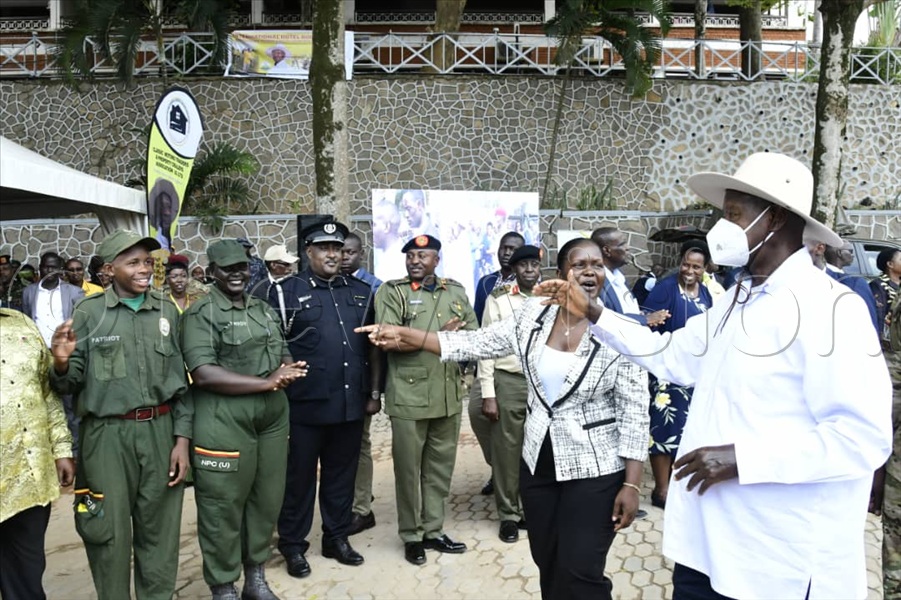
President Museveni said he had listened to the cries from the traders. (All Photos by Eddie Ssejjoba)
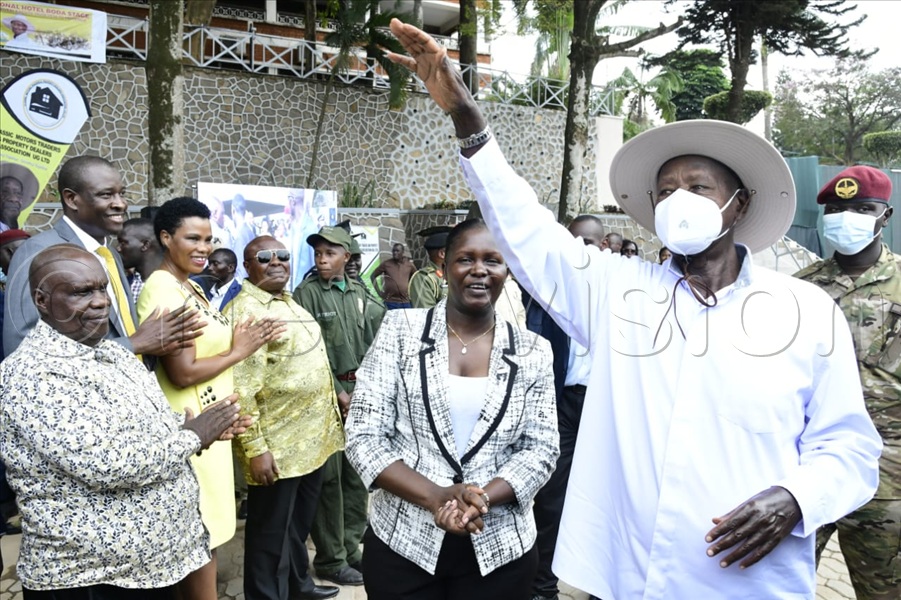
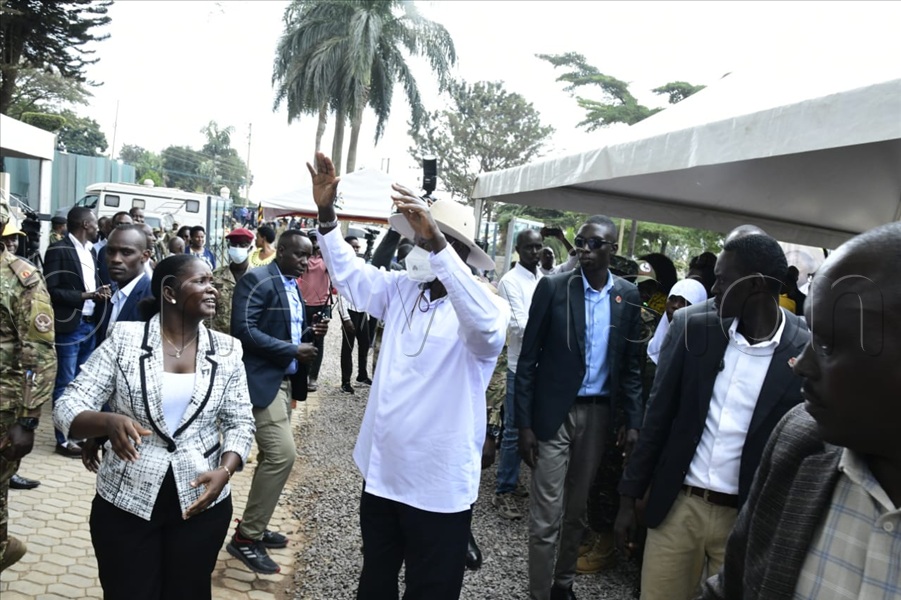
This change was implemented in April to combat fraud and exploitation by container leaders who defrauded taxpayers and small importers.
Under the new policy, each trader must use their own Tax Identification Number (TIN) and a house bill of lading to clear their individual portion of the groupage cargo.
However, during a meeting, Wednesday with the various patriotism clubs and pressure groups at Hotel International Muyenga, the President said he had listened to the cries from the traders.
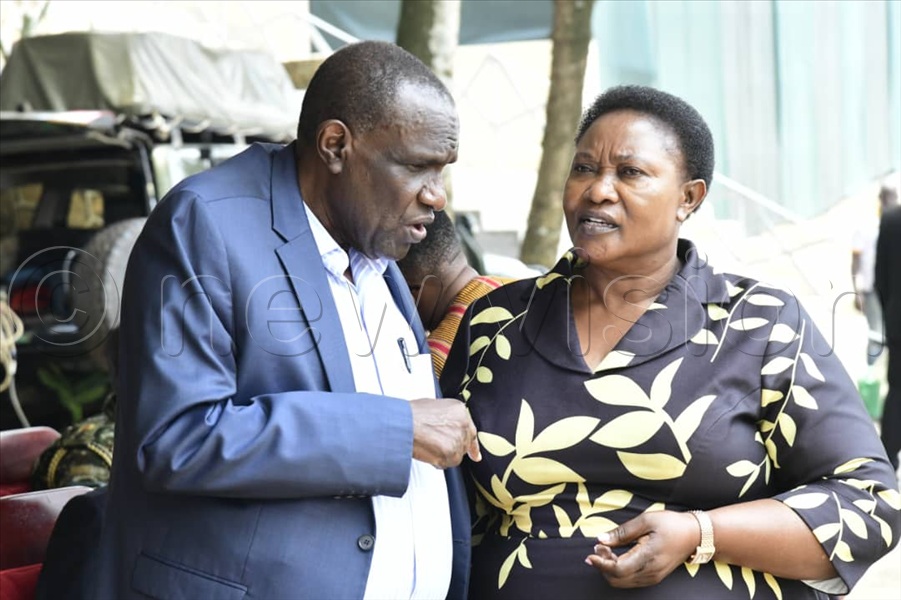
Hajji Yunus Kakande, and Minister for the Presidency Milly Babirye Babalanda.
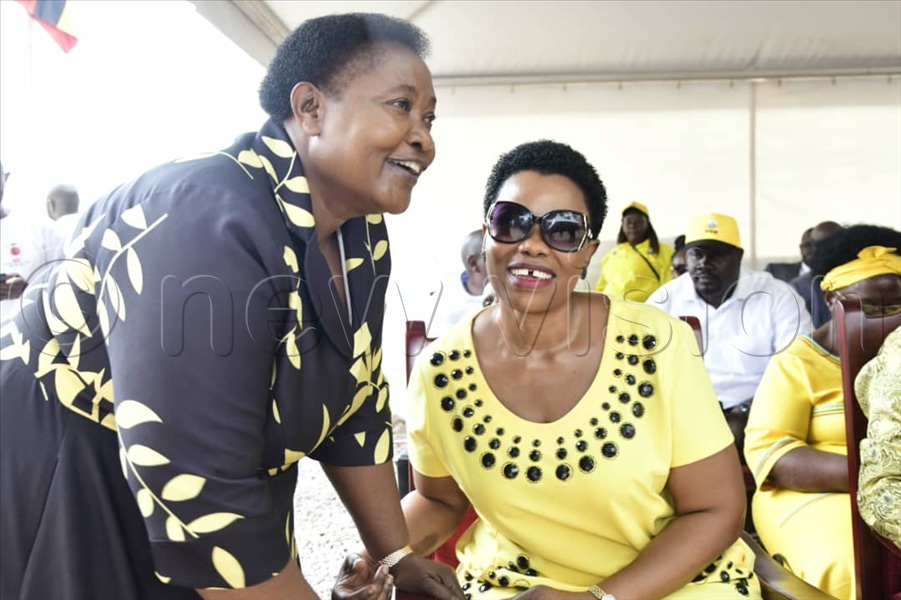
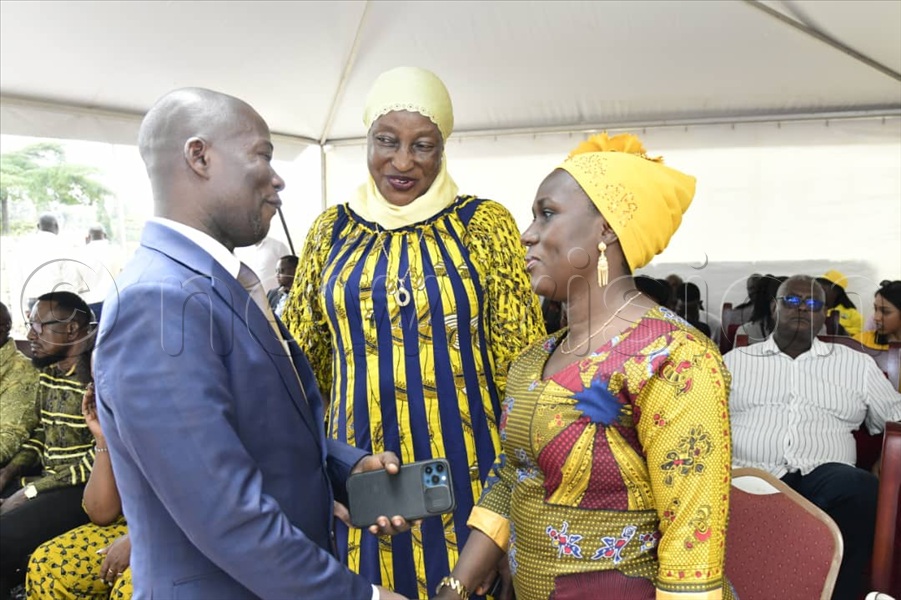
“About the traders’ cries, I will tell URA to forgive you that tax, then in future you can follow the new regulations,” he said.
Museveni also pledged to meet the traders and instructed his principal private secretary to liaise with the leaders to further listen to their concerns.
The President was responding to the traders’ concerns, voiced through Hellen Seku, the commissioner of National Secretariat for Patriotism Corps (NSPC), which is under State House.
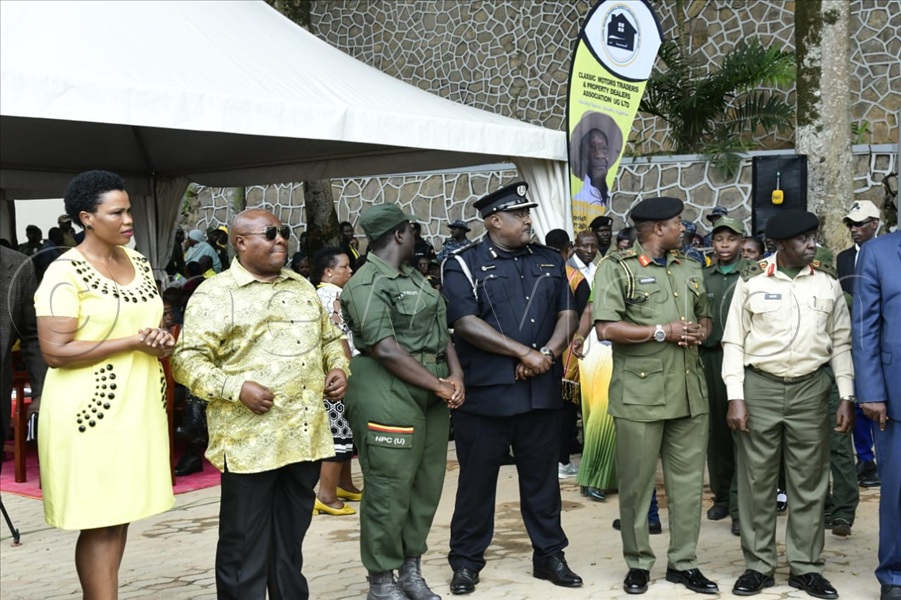
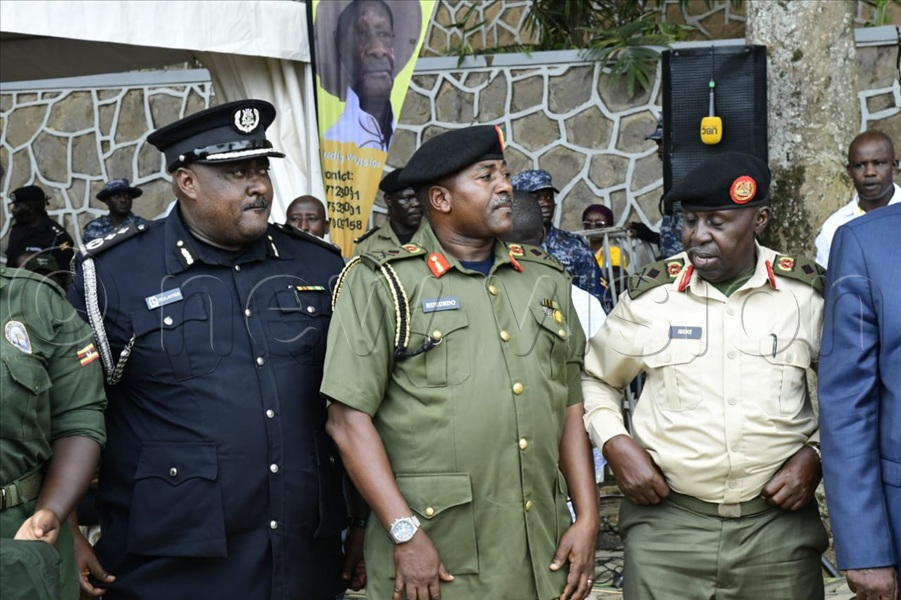
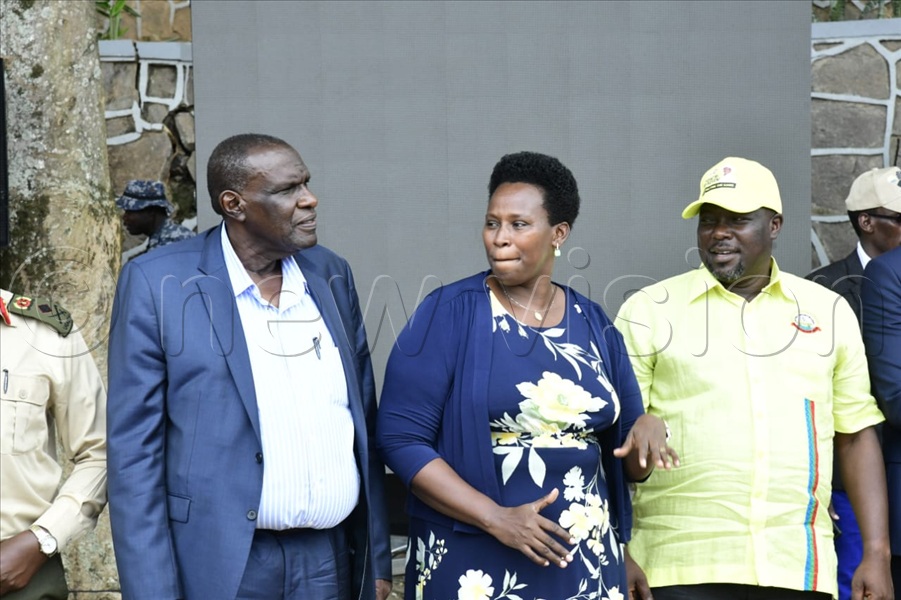
Seku read a list of concerns from the various groups, including traders who turned up to meet the President.
According to her, the traders from the city arcades under the Federation of Uganda Traders’ Association (FUTA) complained that URA confiscated their goods from April, causing untold losses to many small and medium traders.
Seku said most of the cargo containers were still lying uncleared in bonds at the various border points.
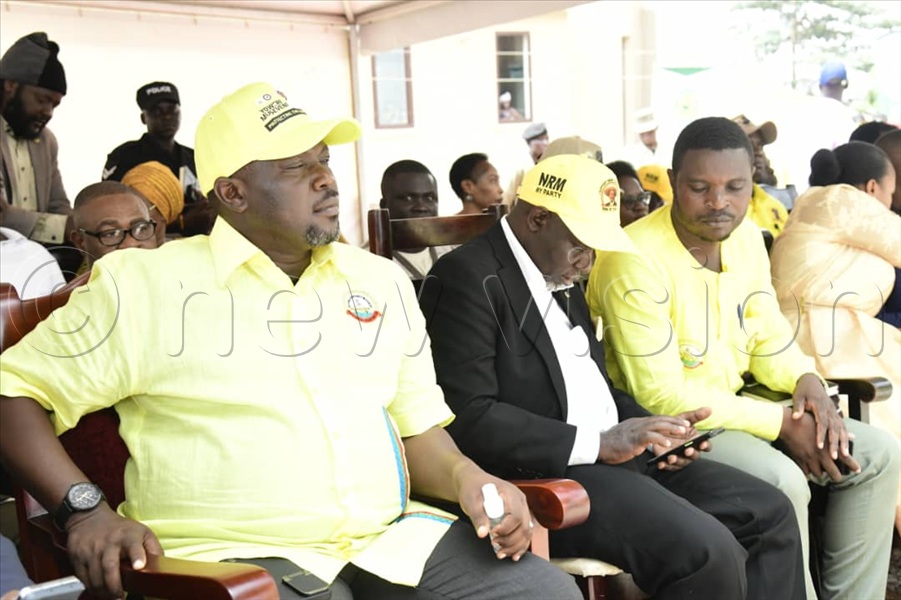
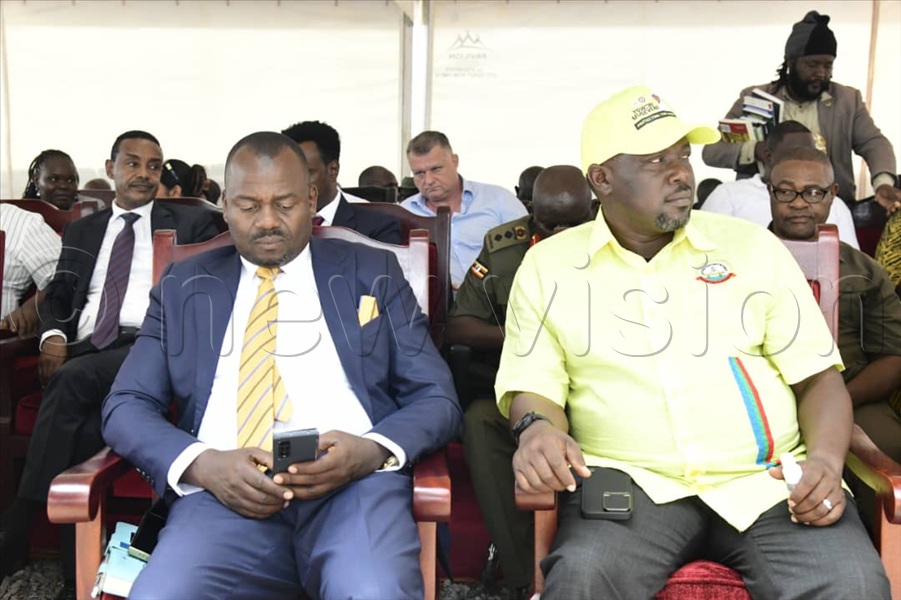
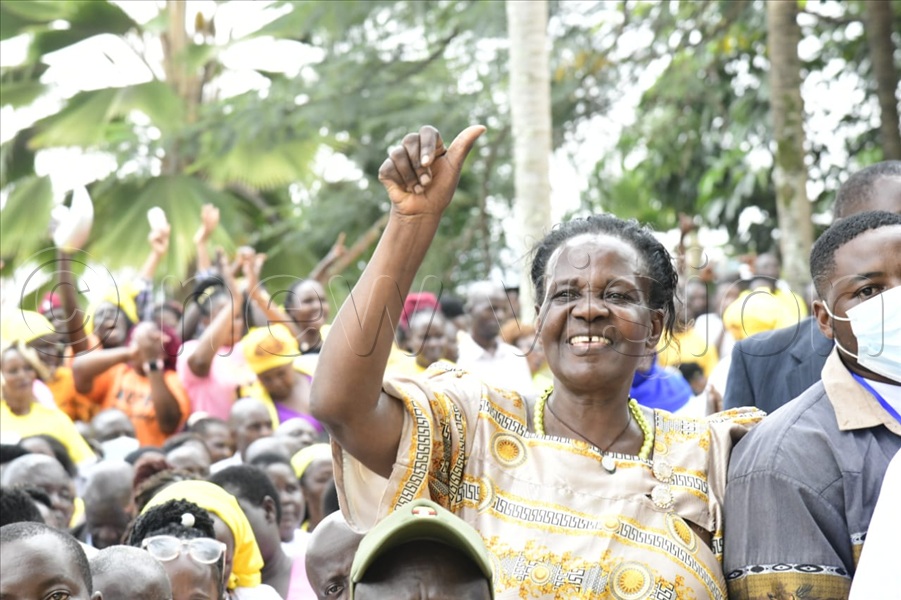
She added that the traders had appealed to the President that URA should release their goods for once and let them sell the current cargo, but pledged that in future, they would follow the new import regulations.
Seku said about 30 traders in Uganda, under the groupage system, combine their cargo into one container, which URA recently banned.
She said banning the system had made the President unpopular among the business community, yet many traders support and love him.
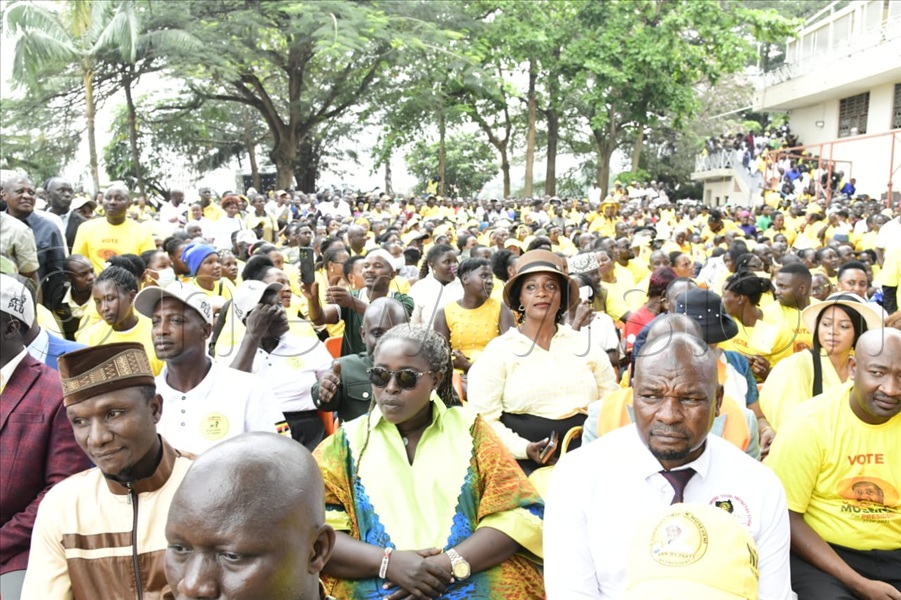
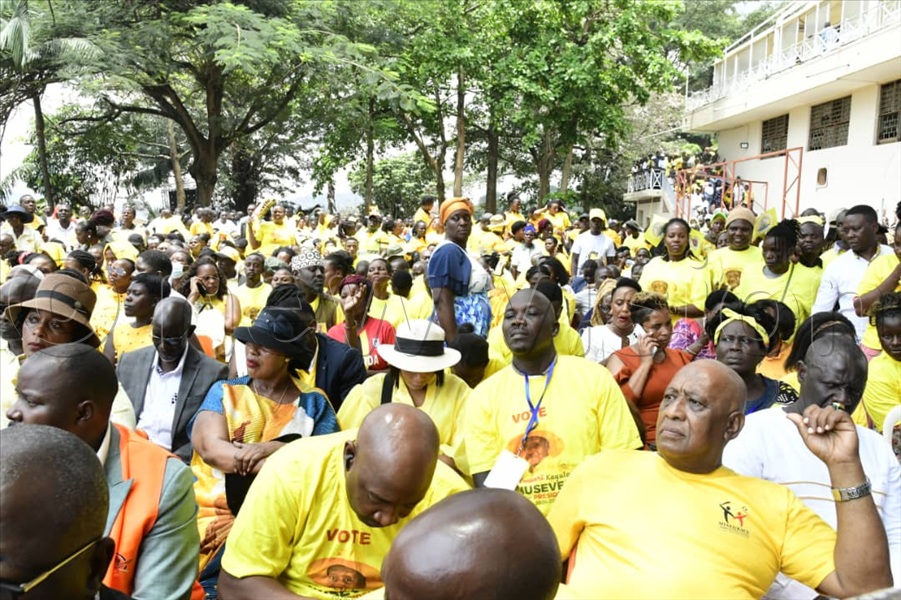
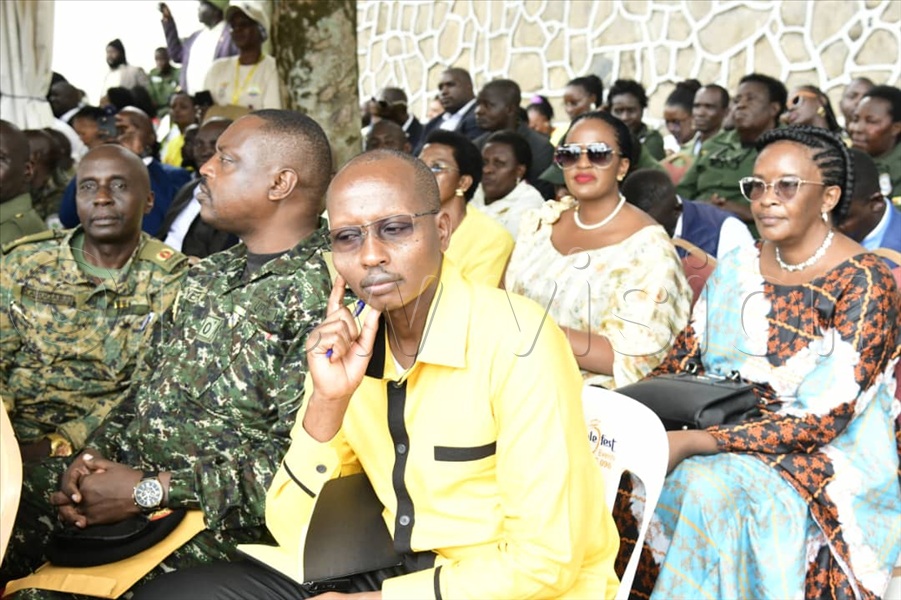
The FUTA traders were represented by their president, John Kabanda, and general secretary, Hussein Kato.
In their petition, which they shared with Seku, Kabanda argued that there was urgent need to first educate the traders about the new system and work out means of overcoming the third parties or the middlemen.
He explained that URA’s shift phasing out container leaders and requiring TINs for group shipment declarations had caused unintended hardships for traders.
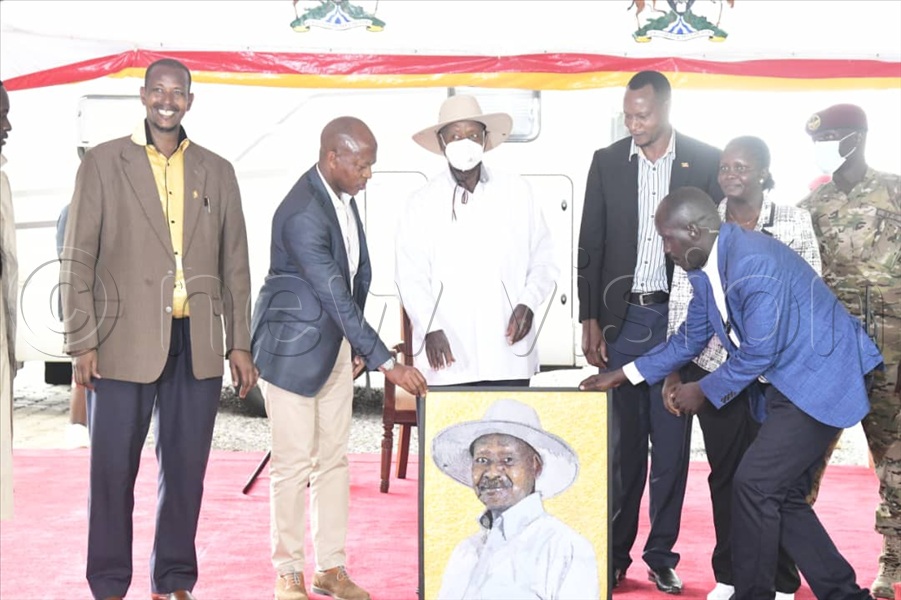
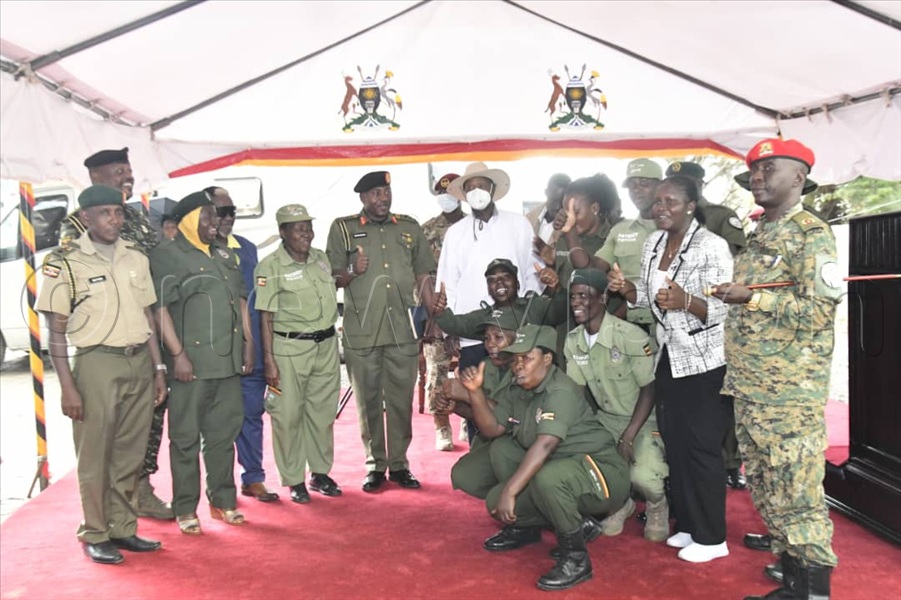
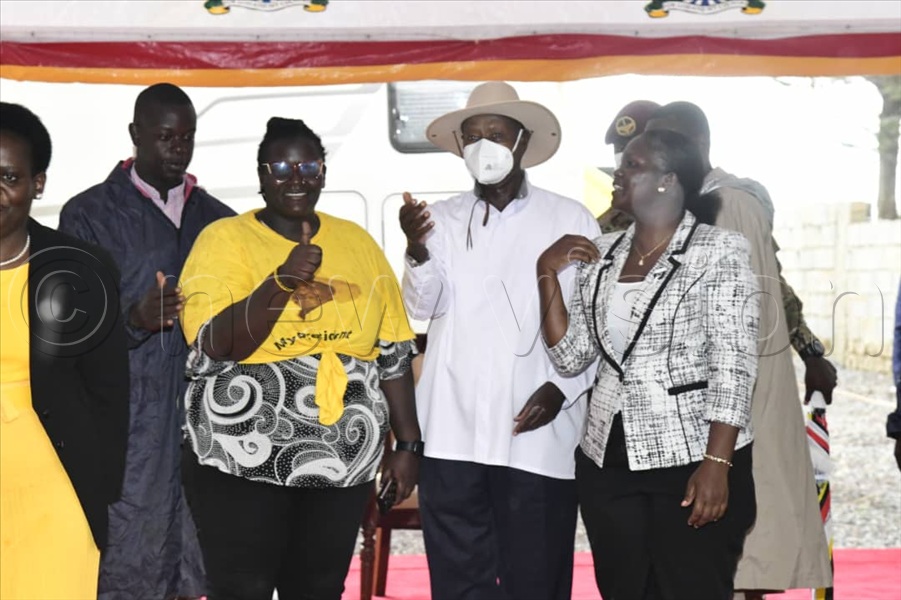
“Many traders are unfamiliar with the new procedures and have had their goods confiscated due to non-compliance. This has caused significant losses, resulting in the recent demonstrations in the city.
“We humbly request your intervention and direct URA to release all confiscated containers belonging to traders who have been affected by the new policy,” Kabanda stated.
Kabanda later told journalists that over 600 containers belonging to the city traders had been confiscated.
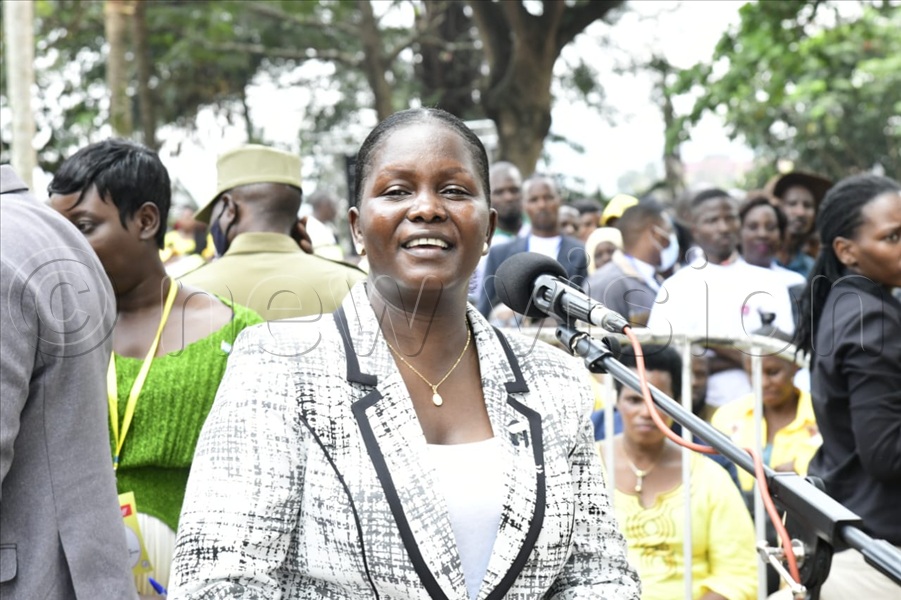
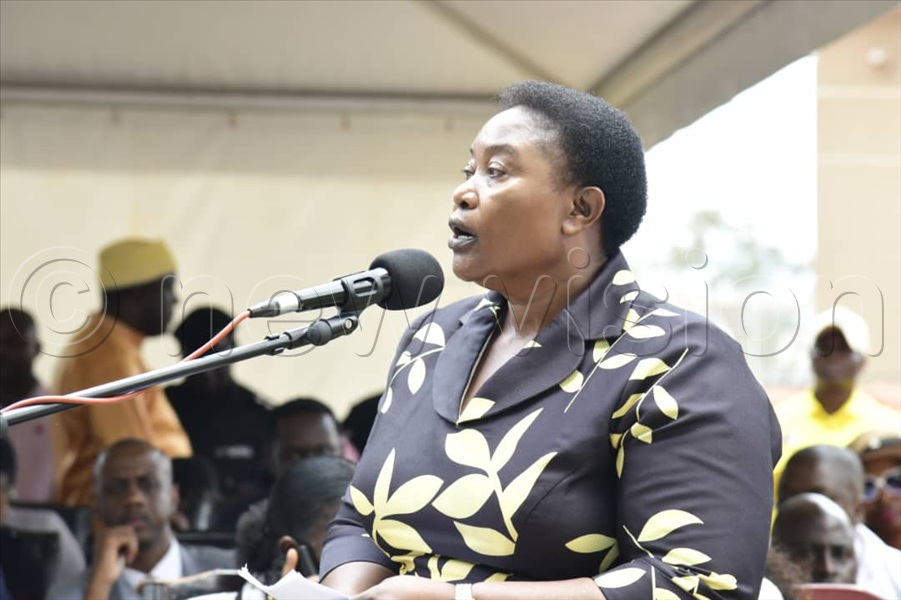
Minister for the Presidency Milly Babirye Babalanda remarks.
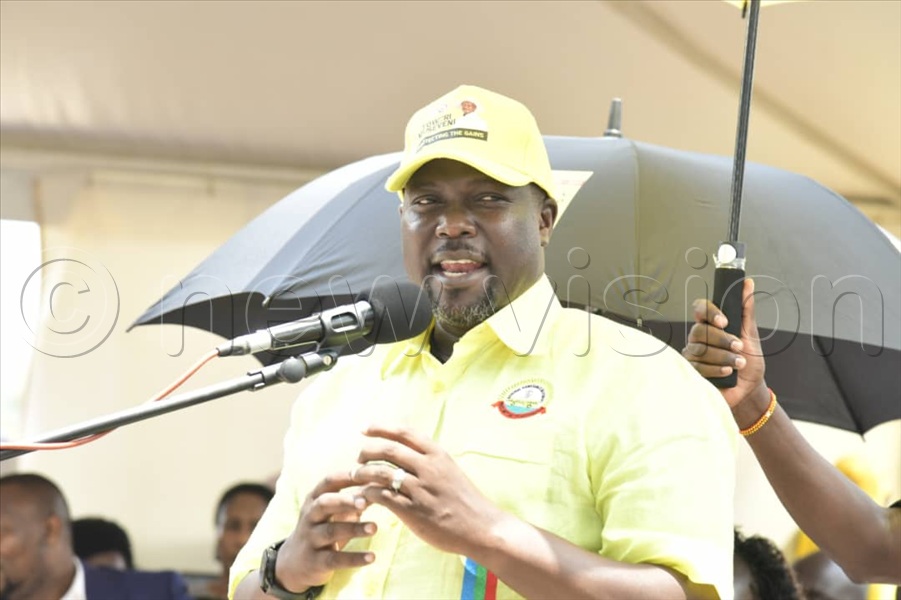
The National Resistance Movement (NRM) secretary general Richard Todwong.
The patron of Kampala City Traders Association, ambassador Godfrey Kirumira, who attended the function, told journalists after the event that the President’s directive to waive the taxes was a huge relief to many traders.
“Even the dollar had gone down in Kampala because many traders stopped importing goods. Those who had imported have their goods still confiscated at Mombasa port and other customs points,” Kirumira, who offered his hotel to always be used by the Patriotism Secretariat, said.
“We highly congratulate the President for this critical directive. Business will resume in many arcades,” he said.
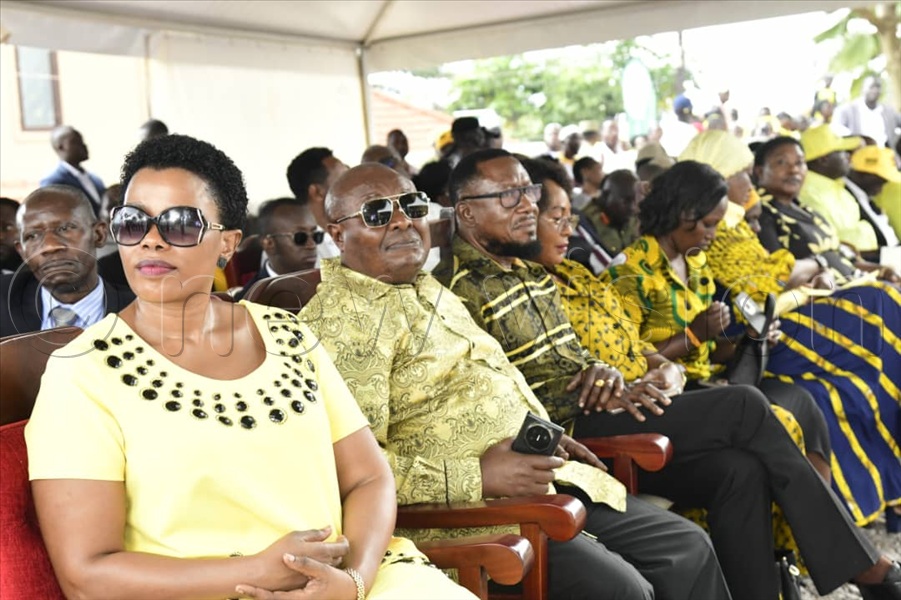
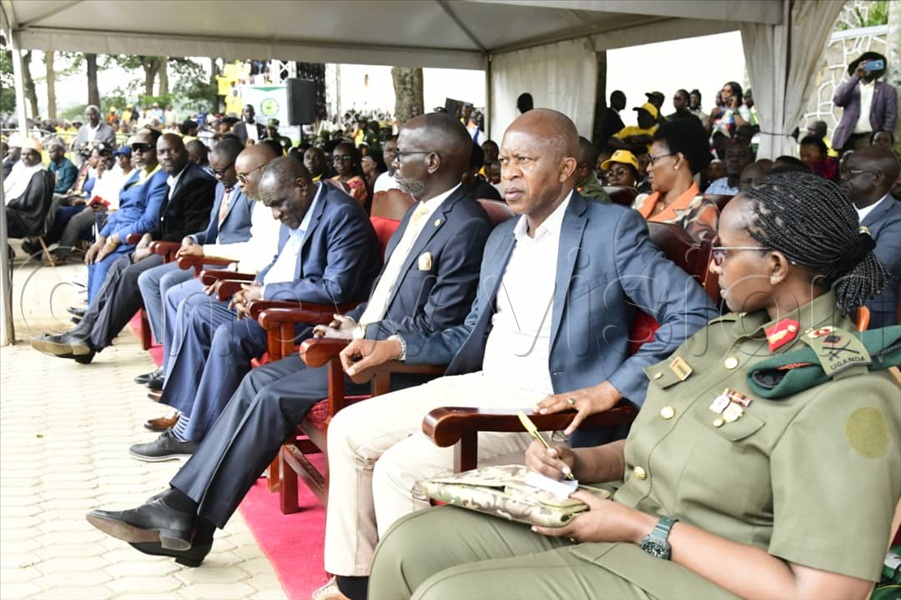
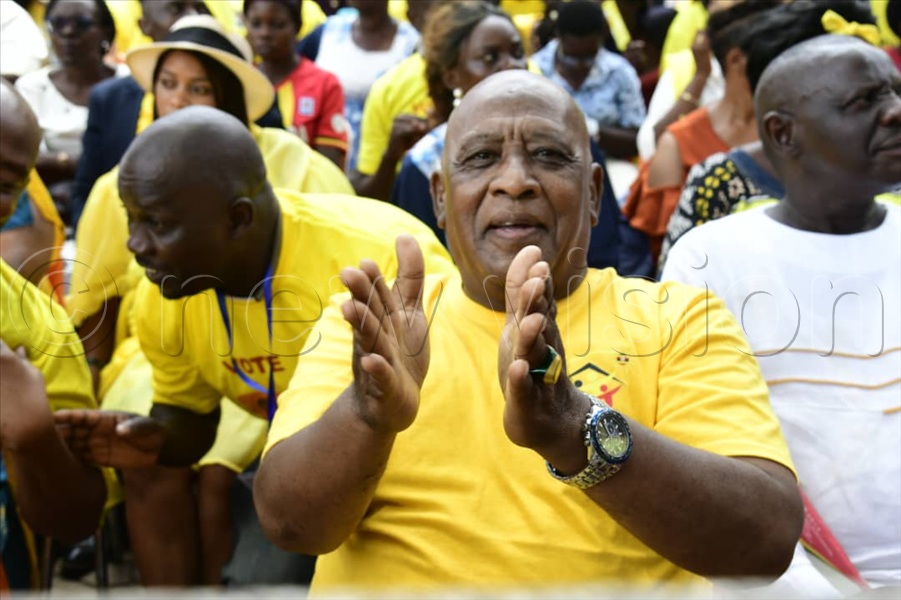
Museveni speaks about other groups
The President categorised the people he met into four groups, including the various graduates of the patriotism clubs, who total to over 450,000 throughout the country.
He asked the patriotism secretariat to obtain all their contacts and locations, and where they live, saying this can be a good force for mobilisation.
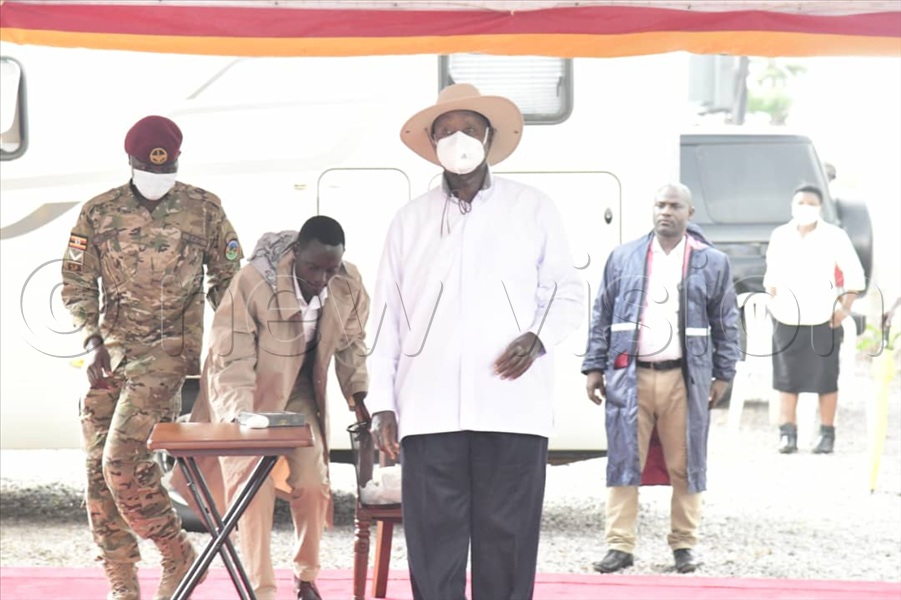
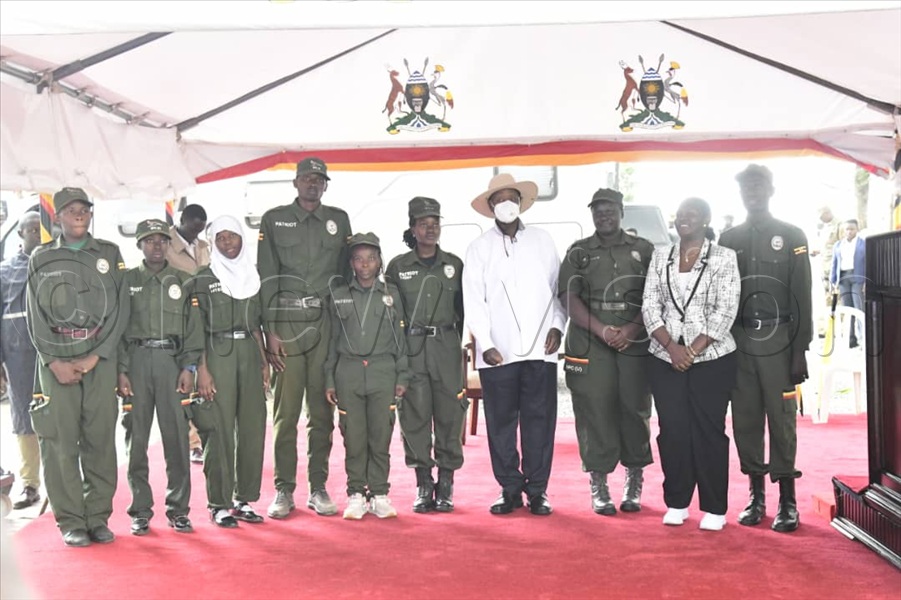
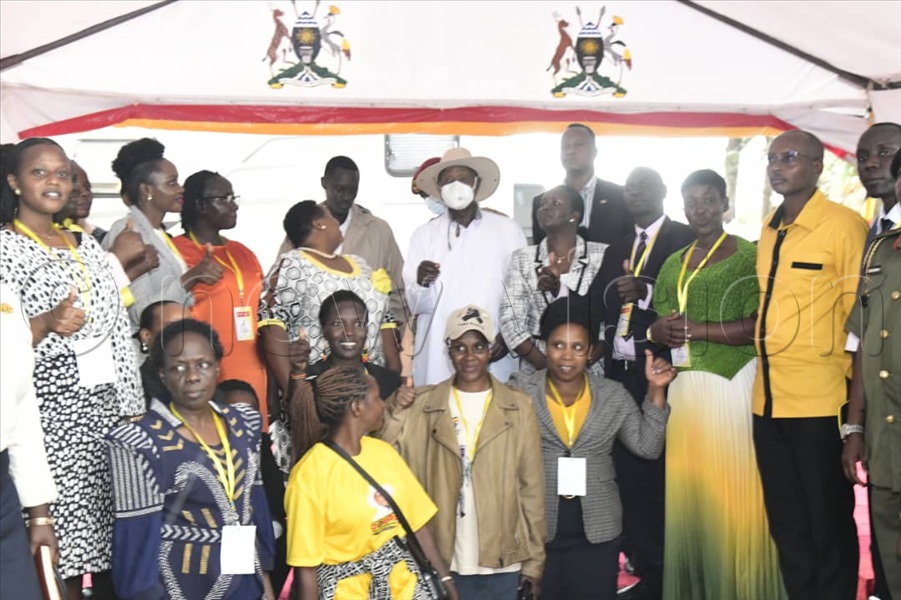
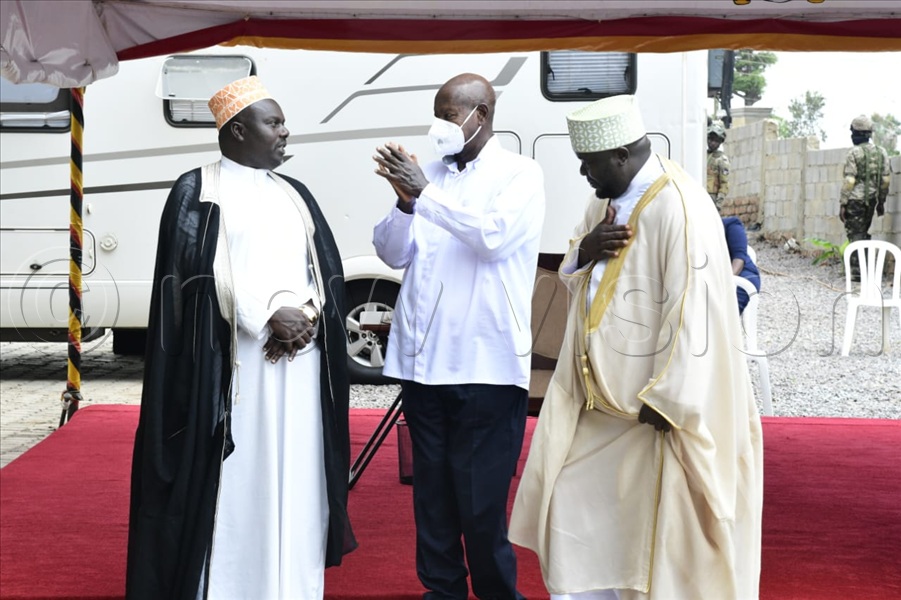
Museveni asked the secretary general of the National Resistance Movement (NRM), Richard Todwong, to include the graduates in their ongoing moblisation campaign and assess how they can make use of them.
The second group he met were enterprise-based groups, who include market vendors and social groups such as the single mothers (banakyeyombekedde) and the pressure groups of mobilisers.
The President advised that the enterprise-based groups can also do political mobilisation and also form Savings and Credit Co-operative Societies, which he said would be easy to support.
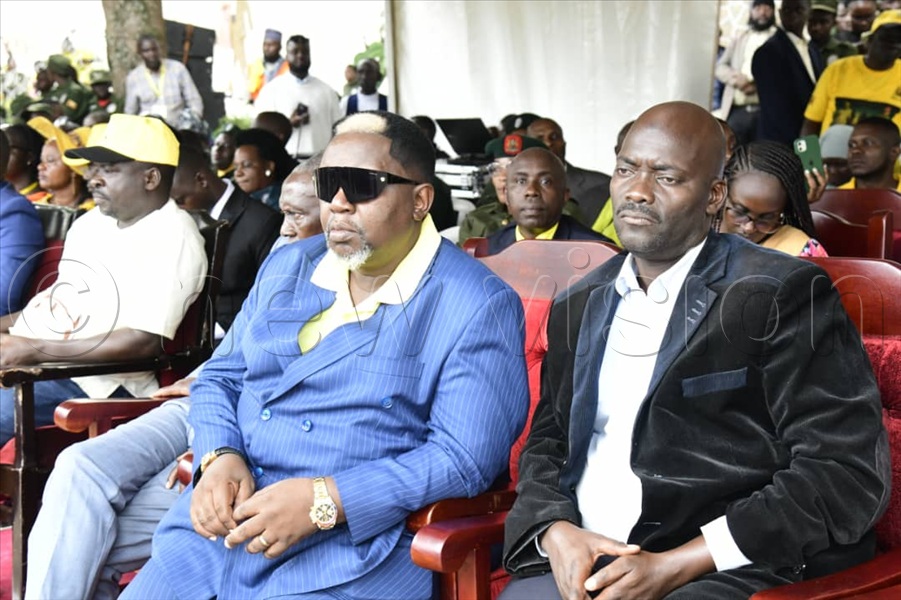
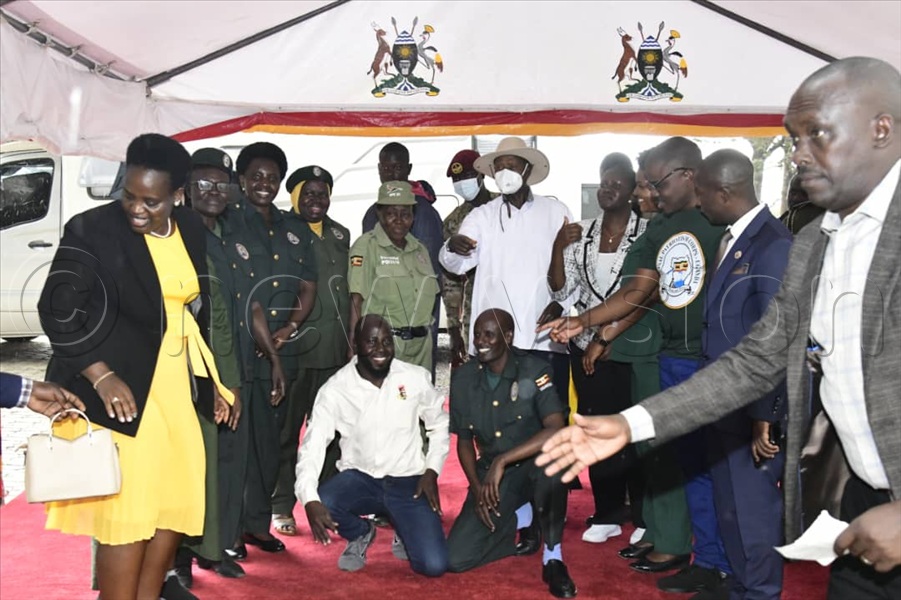
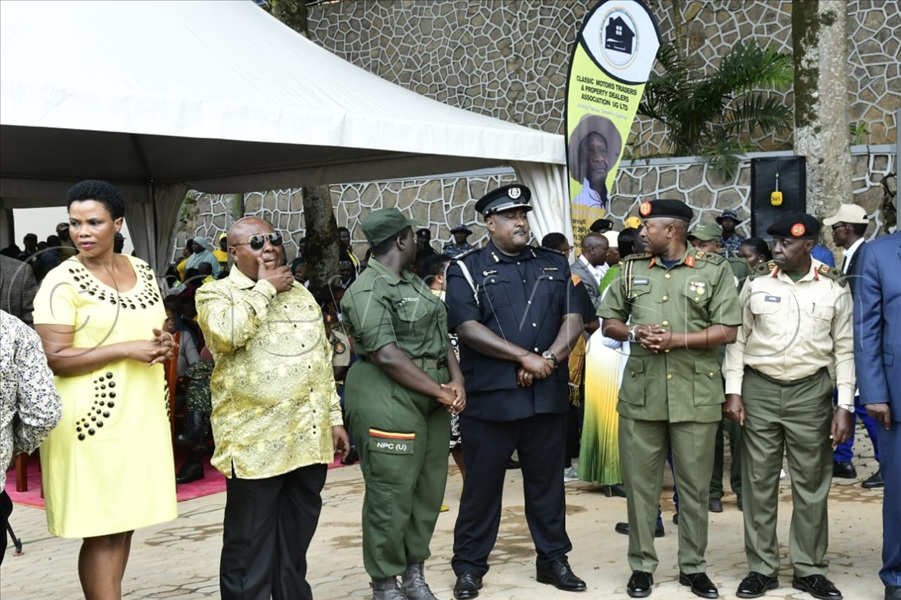
These, he said, were together, easily identifiable. They include market vendors and bodaboda riders.
At the same event, the Council for Abavandimwe, represented by Frank Gashumba, donated to the President a special portrait and pledged to rally behind him during the coming campaigns and elections.